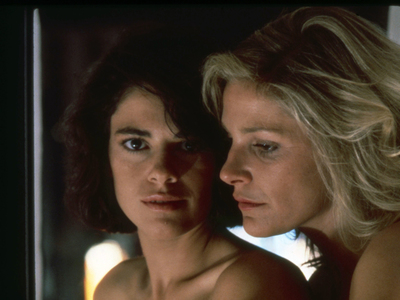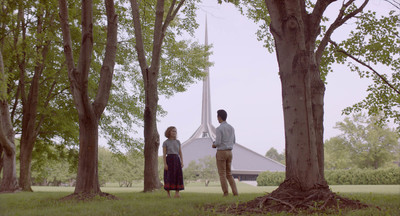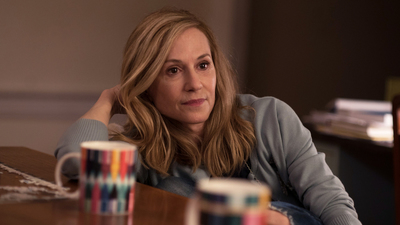
BY MATTHEW ENG |
The 10 Best Male Film Performances of Early 2017
Don't let these exemplary screen performances disappear into the second-half of the year.
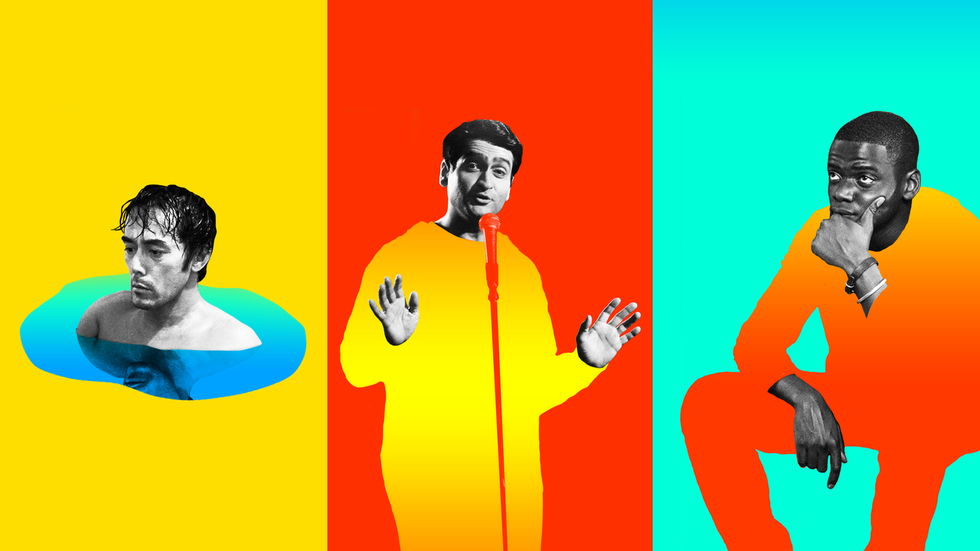
It's been an intriguing year for film lovers as the general slate of early-year releases continue to prove that must-see moviemaking can be found even in the months that Oscar voters seldom remember. From a remarkable horror paradigm-shifter to a pleasingly progressive romantic comedy to sterling outputs from auteurs in Iran, Japan, and the States, this year has already offered a wealth of cinematic riches, which also entail some truly striking screen performances. You've already seen their female counterparts. Here, then, are the finest male performances of the film year thus far:

Hiroshi Abe, After the Storm
It’s next to impossible to imagine a performance like the sensational one that Hiroshi Abe contributes to Hirokazu Kore-eda’s After the Storm ever making its way onto a Best Actor roster, and that’s not only due to the fact that the film itself is a low-key ensemble drama from a Japanese auteur whom the Academy has only recently recognized with formal membership. Subtlety is the hallmark of Abe’s work but it’s also a skill infrequently rewarded by Oscar voters, especially when applied in the service of characters of a certain woebegone disposition.
As Ryôta, a failed writer and patriarch trying to salvage what remains of his middle age, Abe surrenders himself, body and soul, to a fundamentally dispiriting figure and etches a manifestation of depression that is very nearly as potent as Casey Affleck’s much ballyhooed and stoically captivating career peak in Manchester by the Sea. Yet between the two, Abe’s emerges as the far more varied and physically accomplished characterization. With his hunched shoulders, hangdog mouth, and sunken eyes, Abe wears Ryôta’s sadness on the surface, vividly but not flashily. We see Ryôta’s flop sweat and silent panic, but also the flickers of a once-vibrant inner life constantly waging battle with the unbeatable misery weighing down his entire body. Abe also finds personal and precise ways of interacting with the actors around him: he’s evasive but affectionate with his endlessly forgiving mother (the marvelous Kirin Kiki), impish with his young, impressionable son (Taiyô Yoshizawa), and louche to a fault around his wary former wife (Yōko Maki). The result is a fully-realized, flesh-and-blood invention, made all the more commendable for its lack of showy histrionics and convenient exposition. Abe magnetizes the camera with his every casual, character-specific move, keeping viewers drawn and empathetic to a man who exists on the screen but could plausibly live among us, which is perhaps the most heartbreaking attribute of all.

Sam Elliott, The Hero
2015 was a banner year for Sam Elliott, who contributed consummate, movie-strengthening supporting performances as atypical love interests to Lily Tomlin and Blythe Danner in, respectively, Grandma and I’ll See You in My Dreams. That lovely latter film was written and helmed by Brett Haley, whose latest has given Elliott an ultimate, personalized showcase for his understatedly radical persona of open-hearted emotionality and strapping masculinity. Lee Hayden, the washed-up, cancer-stricken, pot-toking Hollywood gunslinger at the center of Haley’s earnest if uneven sophomore endeavor, is a role that could have potentially made Elliott, noted industry cowboy, into a victim of easy self-parody. And certainly, the actor's familiar, irresistible trademarks are ever-present: the slyly cocked brows, the full-bodied drawl, the grinning, sidelong glances. But Elliott's rugged minimalism continues to cut deep, layered this time with a hangdog melancholy that brings an added poignancy to all his scenes, many of which expose sides of his talent that some viewers might not even know existed. An anguishing late-film audition scene reveals Elliott as an observant deconstructionist, capable of taking apart a script and unearthing subtextual truths, all the while astutely blurring the lines between actor and character. Throughout his lengthy career, Elliot has built himself a commendable reputation as a no-brainer choice for sidelined parts that need to resonate in little time. But in The Hero, Elliot has at last found the starring role with which he can stretch and captivate at limitless capacity, solidifying himself as not just one of our most prolific and reliable actors but also one of our most masterly.


Shahab Hosseini and Farid Sajjadi Hosseini, The Salesman
In keeping with his status as the most humane filmmaker working today on the world stage, Asghar Farhadi has given us a bevy of impeccable screen performances that elicit our sympathy without ever forsaking the complexity of character that have come to define his growing filmography. In The Salesman, Farhadi sketches two very different portraits of wounded male pride, one mapped over the course of the entire film and the other in only a handful of scenes.
As Emad, a modern-day teacher and actor who resorts to increasingly drastic measures when his wife is assaulted in their new apartment, Shahab Hosseini, who won Best Actor at Cannes in 2016, charts the alarming evolution of a good-natured everyman into a hawk-eyed vigilante without ever painting in broad strokes. Emad’s guilt-ridden slow burn is a wonder to behold as it’s the rare depiction of instability that hinges on the inner shifts of a thought process, which Hosseini delineates with a readable, clear-cut precision that silently encourages everyone in the ensemble, no matter their role, to match his innate prowess.
As a mysterious, nameless figure who wanders into the movie right around the 100-minute mark, Farid Sajjadi Hosseini supplies an excellent, crucial performance whose particulars cannot be elucidated without spoiling most of Farhadi’s third-act revelations. That being said, what Sajjadi Hosseini accomplishes is nothing short of miraculous: a thorny character study told in miniature that earns our pity without ever making any direct appeals for it. Sajjadi Hosseini ultimately comes to dominate the film, not because he lunges for our attention, but because his commitment to the part is so disconcertingly complete that it obscures our own perception of the actor’s choices. He performs with the selfless verisimilitude of a Rossellini player and, in doing so, bridges the divide between our world and that of the film, which is really the most any actor can hope to accomplish, no matter the amount of lines or scenes.
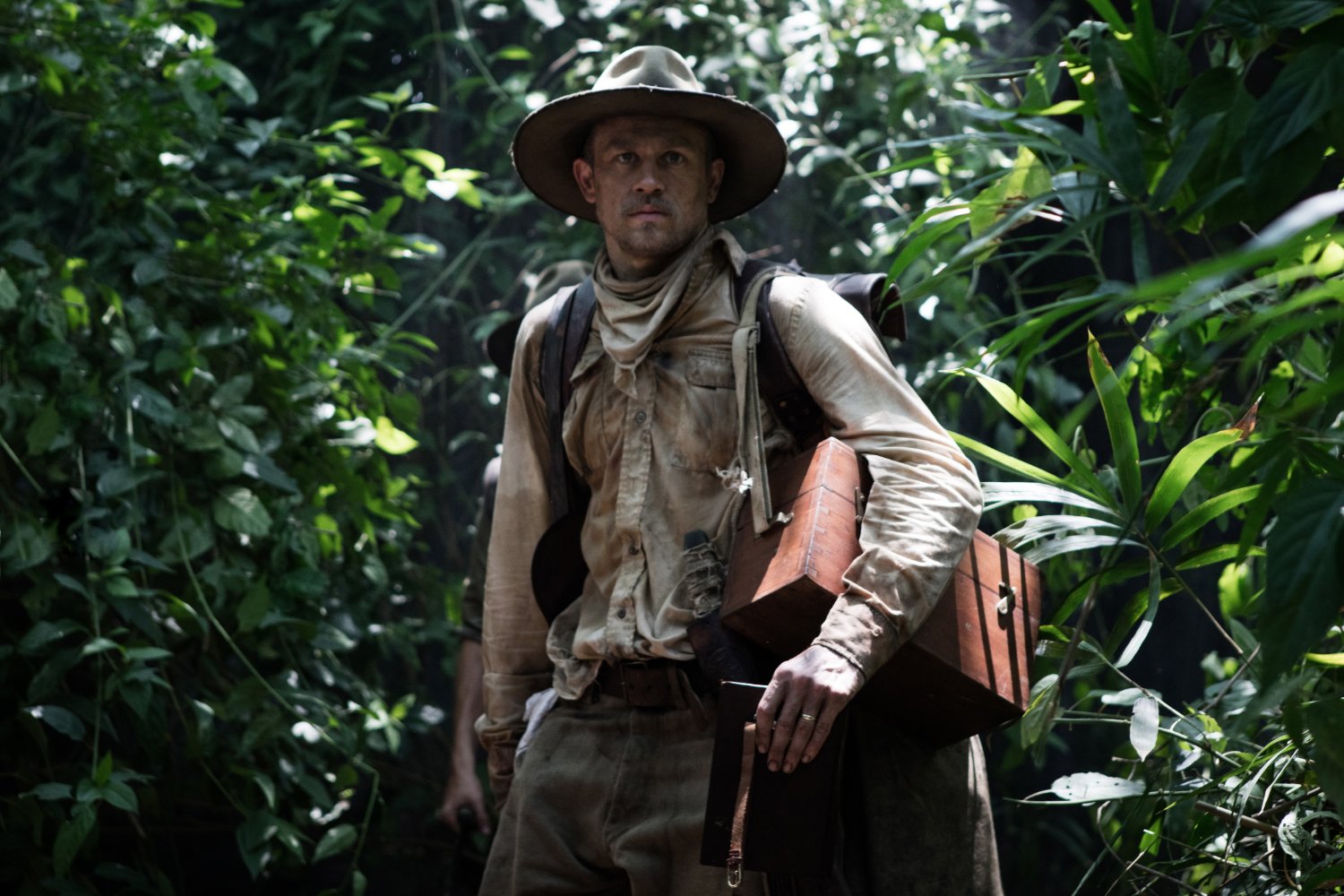


Charlie Hunnam, Angus Macfadyen, and Robert Pattinson, The Lost City of Z
The filmmaking in James Gray’s The Lost City of Z is so overwhelming in its across-the-board virtuosity that the entire production could have probably survived performances that were merely adequate. But besides being woefully undervalued among modern moviegoers in general, Gray is also an adept and equally undervalued actor’s director who has drawn out layered and authentically lived-in characterizations from performers of all stripes, each one stitched seamlessly into the fabrics of his period and milieu-specific creations.
Gray’s latest, a panoramic, golden-hued historical drama chronicling the life and exploits of the hard-driving British explorer and officer Percy Fawcett (Charlie Hunnam), is no exception, featuring invaluable and selfless character work from an extensive ensemble, including a bearded and barely recognizable Robert Pattinson, whose acting is largely undetectable as Fawcett’s sly right-hand man, Corporal Henry Costin. Exquisitely scaling back his own distinct presence, Pattinson finds grace notes of wry humor and warmth within a character who is never once allowed to seize the movie for himself yet manages to exude a fond and increasingly familiar personality that earns him a bittersweet farewell that Pattinson beautifully underplays. Meanwhile, Angus Macfadyen’s exceedingly manipulative biologist James Murray, who finds himself woefully underprepared for the grueling demands of an Amazonian expedition, could have been a figure of relentless, mustache-twirling slapstick and a character we’d have been more than happy to bid farewell to were it not for the actor’s praiseworthy refusal to play neither a villain nor a punching bag. Macfadyen ably captures the peacock posturing and haughty self-regard of a man of unseemly hubris, but it’s his psychological unraveling in the jungle that really impresses, evoking a feverish sense of desperation that isn’t just pitiful to witness but oddly haunting as well.
Of course, neither Macfadyen’s nor Pattinson’s interpretations might have existed in these exact forms were it not for the model set by Hunnam, whose utterly captivating star turn guides and grounds the efforts of every player who appears throughout the film. Hunnam has taken numerous and largely unsuccessful stabs at contemporary movie stardom throughout the decade, from Pacific Rim to this spring’s King Arthur, which may explain why The Lost City of Z comes as such a surprise to those who had all but given up on the actor. Here, Hunnam burns with the incandescent charisma of a classic matinee idol, his body a paragon of relaxed self-possession even as his eyes spark with the uncontainable energy of a man driven toward exalted ends that only he can envision. Hunnam’s quiet conviction anchors the movie that has been built around him, but his deviations from this stoic mode, those scarce and baldly emotional admissions of love and mortality, movingly set the stage for the ineffable conclusion of this rare and ambitious masterwork, whose gales of heartache can still be felt long after Fawcett’s dream has ceased to exist.

Daniel Kaluuya, Get Out
Like The Lost City of Z, Jordan Peele’s Get Out is such a compulsively-crafted piece of filmmaking that it probably didn’t require such an intensely watchable turn from breakout star Daniel Kaluuya to attain its jolting, thought-provoking terrors. Nonetheless, Kaluuya’s savvy playing matches Peele’s directorial dexterity beat-for-beat, merging horror’s “final guy” archetype with an achingly sincere characterization. Kaluuya’s teatime tête-à-tête with a perfectly eerie Catherine Keener makes for one of the year’s most compelling and persuasive dramatic scenes, in addition to being a spine-tingling preview of frights to come. This is plainly a result of Kaluuya, who has taken the material as seriously as possible, thus ensuring that Chris’ tragic backstory will acutely affect us and that Get Out’s endlessly clever scares will also pack an unusually sobering punch. He’s a keen-eyed audience surrogate but he’s also a credibly normal human being, which lends a considerable deal of poignancy to the film’s climax as previously-revealed character history unexpectedly reemerges, leaving it up to Kaluuya to make us both feel and believe it. The actor redoubtably delivers, richly expanding on an already well-developed character and auguring immense promise for his own ascendant career, which will hopefully provide him with even more opportunities to outdo this tremendously ideal breakout achievement.


Kumail Nanjiani and Ray Romano, The Big Sick
Kumail Nanjiani and Emily V. Gordon’s script for their highly-autobiographical, girlfriend-in-a-coma romantic comedy The Big Sick contains such sweeping affection for all its characters that it manages to imbue each and every one of them with detail, dignity, and deep feeling. That is no small feat and it’s one enriched even further by the actors who have brought these personae to life. Nanjiani might be playing a thinly-veiled version of himself but that should in no way detract from the limber and expressive comedy he creates on a moment-to-moment basis within the film, drawing on his improvisational background to keep the action spry and unpredictable. But even more unexpectedly, The Big Sick also announces Nanjiani as a particularly soulful leading man. He interacts gorgeously with Zoe Kazan and proves more than ready to downplay a gag in order to grasp and convey the graver truth of a moment.
And Nanjiani’s not the only comedian stretching himself in the film. Ray Romano springs into the film alongside the glorious Holly Hunter as Kazan’s protective parents, immediately varying and strengthening the film’s comedic tenor with their relaxed, loose-ended interactions, each an informal demonstration of a messy but comfortable marriage that endows the film with some of its toughest insights. In the years since Everybody Loves Raymond, Romano has aged into a nimbly inspired character actor who can still blast forth with a perfectly-paced punchline or lend his dialogue scenes with Hunter and Nanjiani specific rhythms that can only be pulled off by a seasoned comedian of meticulous timing. But Romano also nails the scattered moments of softer intimacy that set The Big Sick apart from the bulk of present-day comedies. His observations on love and fidelity feel genuinely spontaneous, his anecdotes about past mistakes convincingly well-worn. Romano’s wry, layered performance is one of the great surprises of the film year and a humbling reminder that so many performers contain dimensions we are seldom allowed to see. When we finally do, as in Romano’s case, the discovery is more than worth the wait.
